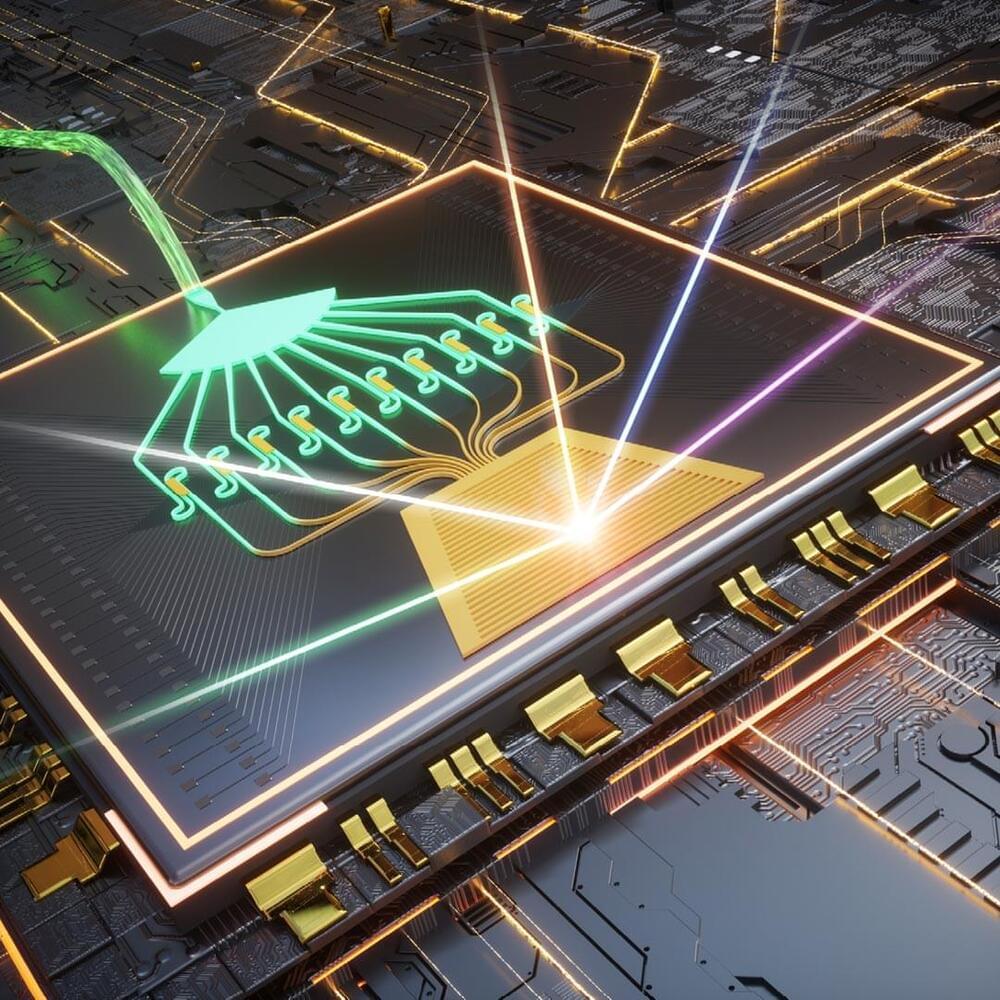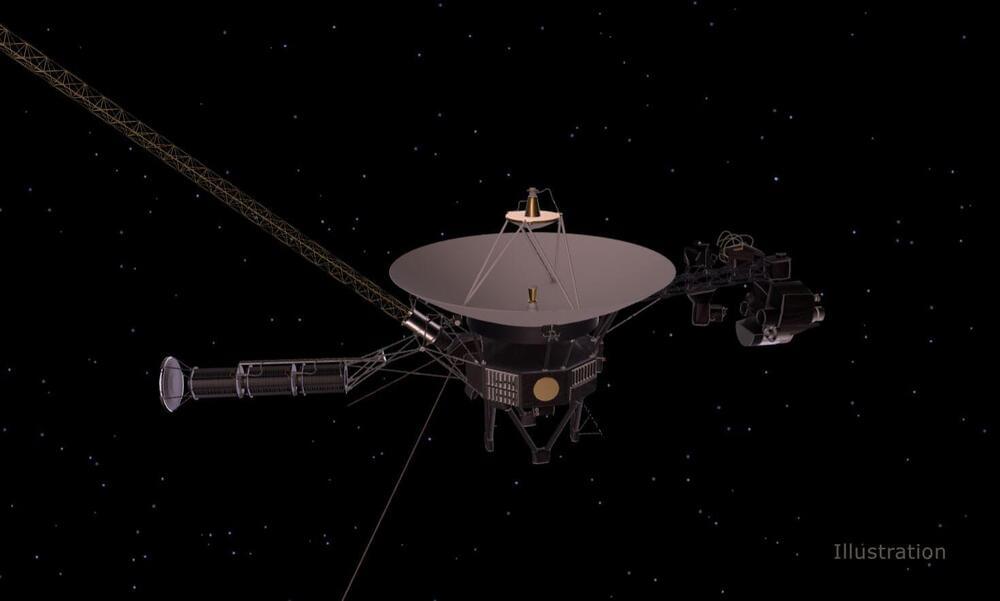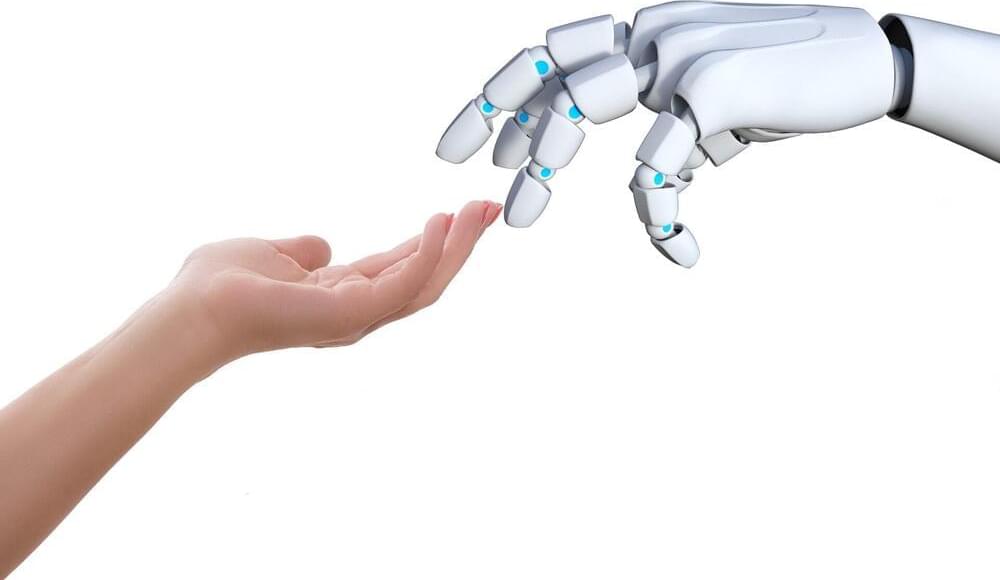Air Protein is transforming carbon emissions into delicious cuts of meat, with the helping hand of bacteria.



Researchers have developed a new chip-based beam steering technology that provides a promising route to small, cost-effective, and high-performance lidar systems. Lidar, or light detection and ranging, uses laser pulses to acquire 3D information about a scene or object. It is used in a wide range of applications such as autonomous driving, 3D holography, biomedical sensing, free-space optical communications, and virtual reality.
“Optical beam steering is a key technology for lidar systems, but conventional mechanical-based beam steering systems are bulky, expensive, sensitive to vibration, and limited in speed,” said research team leader Hao Hu from the Technical University of Denmark. “Although devices known as chip-based optical phased arrays (OPAs) can quickly and precisely steer light in a non-mechanical way, so far, these devices have had poor beam quality and a field of view typically below 100 degrees.”

The area surveyed represents two-thirds of the Great Barrier Reef.
Almost half of the reefs studied had between 10% and 30% hard coral cover, while about a third of the reefs had hard coral cover levels between 30% and 50%, the report said.
While higher water temperatures led to a coral bleaching event in some areas in March, the temperatures did not climb high enough to kill the coral, the agency said.
face_with_colon_three circa 2018.
Gold is amazingly weird. For one thing, it’s now thought that much of it came from aftermaths of the collisions of two super-dense neutron stars. Some of this atomic gold, sprayed across the cosmos, managed to coalesce under gravity, get trapped in a newly-formed Earth, undergo a suite of geological processes, and ultimately pop up at the surface.
Its considerably epic cosmic journey is certainly something to marvel at, as is the fact that it’s useful for so many things besides jewelry. Now, as spotted by New Scientist, we’ve made a new form of gold that’s golder than ever before, and it’s bonkers. Related StoriesCosmic Tug-Of-War Leaves Merging Galaxies Gasping For Fuel “How Do You Handle Menstruation In Space?”: An Astronaut ExplainsEinstein Is Right Again – Gravity Has Not Changed Across The Universe.
What is it? MHD PROPULSION EXPLAINED
Special thanks to all our patrons and volunteers!
Thank you for your support!
Blender.
For all their hard work in making an amazing and.
professional program.
Scientists all over the Globe For providing much scientific data.
and working hard to give all of us a bright and amazing future.
Music:
All songs are from the YouTube audio library.

Engineers have repaired an issue affecting data from NASA’s Voyager 1 spacecraft. Earlier this year, the probe’s attitude articulation and control system (AACS), which keeps Voyager 1’s antenna pointed at Earth, began sending garbled information about its health and activities to mission controllers, despite operating normally. The rest of the probe also appeared healthy as it continued to gather and return science data.
The team has since located the source of the garbled information: The AACS had started sending the telemetry data through an onboard computer known to have stopped working years ago, and the computer corrupted the information.
Suzanne Dodd, Voyager’s project manager, said that when they suspected this was the issue, they opted to try a low-risk solution: commanding the AACS to resume sending the data to the right computer.

Too much screen use has been linked to obesity and psychological problems. Now a new study has identified a new problem—a study in fruit flies suggests our basic cellular functions could be impacted by the blue light emitted by these devices. These results are published in Frontiers in Aging.
“Excessive exposure to blue light from everyday devices, such as TVs, laptops, and phones, may have detrimental effects on a wide range of cells in our body, from skin and fat cells, to sensory neurons,” said Dr. Jadwiga Giebultowicz, a professor at the Department of Integrative Biology at Oregon State University and senior author of this study. “We are the first to show that the levels of specific metabolites—chemicals that are essential for cells to function correctly—are altered in fruit flies exposed to blue light.”
“Our study suggests that avoidance of excessive blue light exposure may be a good anti-aging strategy,” advised Giebultowicz.

The thermal radiation emitted by the human body is predominantly in the long-wave infrared region (8–14 μm), which is characterized by low photon energy and low power intensity.
Recently, a research team led by Associate Prof. Lu Xiaowei, Prof. Jiang Peng and Prof. Bao Xinhe from the Dalian Institute of Chemical Physics (DICP) of the Chinese Academy of Sciences (CAS) designed a highly sensitive long-wave infrared detector that enables low-power non-contact human-machine interaction.
This study was published in Advanced Materials on July 11.


Alloy that exceeds the strength and ductility of other state-of-the-art additively manufactured materials. This breakthrough could lead to higher-performance components for applications in aerospace, medicine, energy, and transportation. The work was done by researchers from the University of Massachusetts Amherst and the Georgia Institute of Technology. It was led by Wen Chen, assistant professor of mechanical and industrial engineering at UMass, and Ting Zhu, professor of mechanical engineering at Georgia Tech, will be published today (August 3, 2022) in the journal Nature.
High entropy alloys (HEAs) have become increasingly popular as a new paradigm in materials science over the past 15 years. They are comprised of five or more elements in near-equal proportions and offer the ability to create a near-infinite number of unique combinations for alloy design. Traditional alloys, such as brass, stainless steel, carbon steel, and bronze, contain a primary element combined with one or more trace elements.